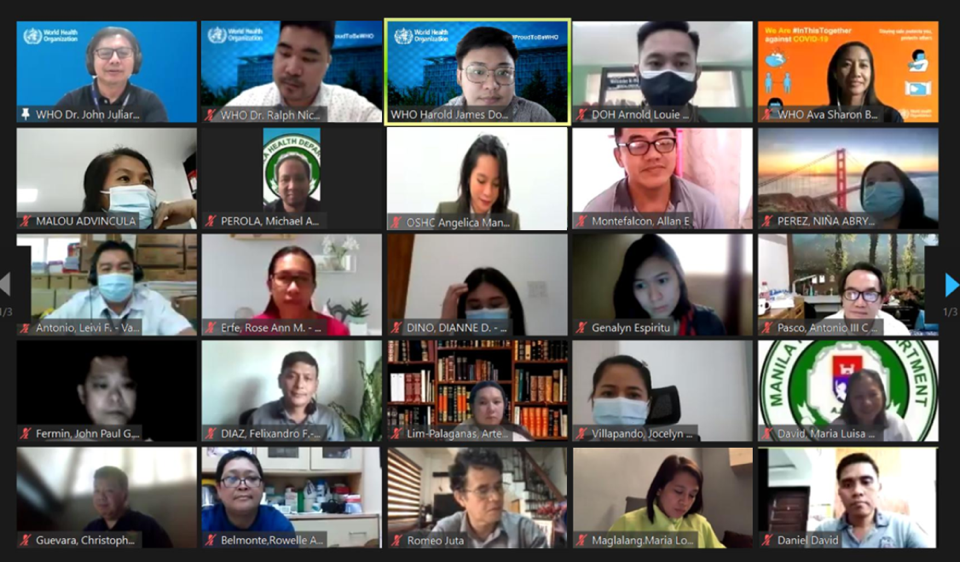Workplace transmission of COVID-19 continues to be a challenge in the Philippines and dedicated efforts are needed to break the chains of transmission to save lives and livelihoods.
To enhance workplace safety, the World Health Organization (WHO) Country Office in the Philippines, in partnership with the Department of Health (DOH) Center for Health Development Metro Manila and in collaboration with the Occupational Safety and Health Center (OSHC) of the Department of Labor and Employment (DOLE) conducted a session on ‘COVID-19 Response in the Workplace’ for safety officers of local government units (LGUs) on 30 April 2021.
“The Philippines has been profoundly affected by the COVID-19 pandemic resulting in loss of lives and livelihoods. As we support the response to the pandemic, we also need to support economic revival though ensuring safety of workplaces. The health and safety of our entire workforce is of paramount importance,” said Dr Rabindra Abeyasinghe, WHO Representative to the Philippines. “To protect those at risk, it is imperative that local health systems redouble their efforts to implement effective infection, prevention and control strategies in all settings including workplaces.
Measures to protect workers from exposure to and infection with COVID-19 depends on exposure risk. That risk varies based on the type of work, the level of interaction with people, and contamination of the work environment. To assess and mitigate these factors, employers should conduct a thorough risk assessment and implement robust infection, prevent and control strategies, including contact tracing, to keep workplaces open and operational. Building capacity and strengthening information sharing practices with respective local health offices is crucial to these efforts and will allow for a more coordinated and effective response.

Additional measures to ensure physical distancing, improve ventilation and strengthen occupational health safety protocols in the context of COVID-19, enhance early detection and isolation of cases and quarantining contacts, and protect workers in their dormitories and family homes are all important to bring back production capacity in a safe and sustainable manner.
The workplace session was attended by commissioned safety officers from different LGUs nationwide and supplemented the 40-hour mandatory course on Basic Occupational Safety and Health Training Course of the Occupational Safety and Health Services of the DOLE.
WHO will continue to provide support to the DOH and response partners to make workplaces healthier and safer by strengthening prevention and response systems to prevent, detect and respond to COVID-19 cases and establish information sharing across LGU boundaries and settings to enhance response efforts.
Photo Credit: WHO/HDoroteo
